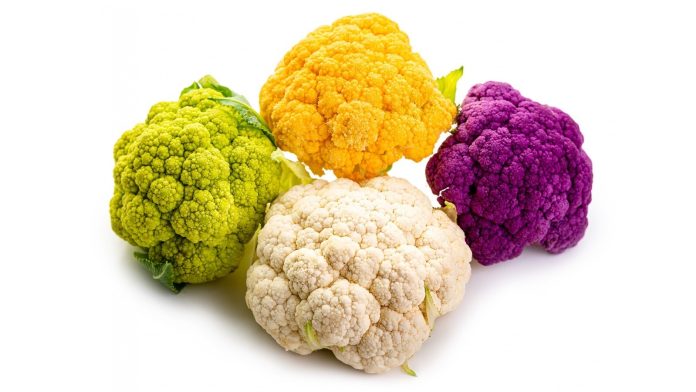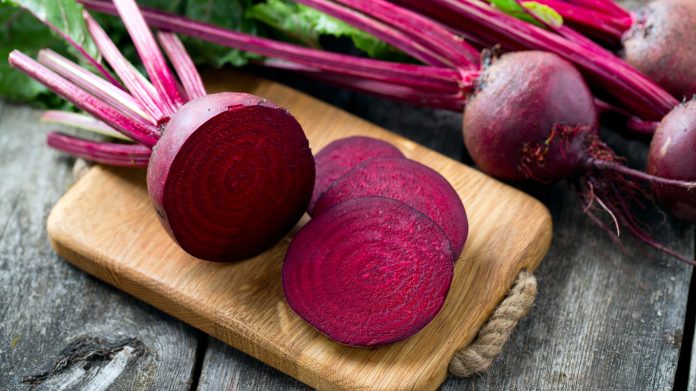Cauliflower’s Health Advantages
Cauliflower stands out as a natural powerhouse of health benefits, offering a rich array of essential vitamins, minerals, and fiber that contribute to overall well-being. Bursting with nutrients such as vitamin C, vitamin K, potassium, and manganese, cauliflower serves as a nutrient-dense addition to any diet seeking to enhance natural vitality. Its high fiber content, exceeding 2 grams per cup, not only promotes feelings of fullness but also supports optimal digestion and helps regulate blood sugar levels, fostering a balanced and healthy lifestyle.
Moreover, cauliflower’s remarkable versatility in the kitchen enhances its appeal as a natural health champion. With its mild flavor and satisfying texture, cauliflower can seamlessly replace grains in dishes like cauliflower rice or pizza crust, offering a low-carb, nutrient-packed alternative. Whether steamed, roasted, mashed, or blended into soups and sauces, cauliflower’s adaptability allows it to shine in a multitude of delicious and nutritious recipes, making it an indispensable staple for those prioritizing natural health and wellness.
Boosts Immunity and Strengthens Cells
Cauliflower enhances natural health by providing a substantial portion of your daily vitamin C requirement, bolstering your immune system to fend off infections and diseases. Additionally, a cup of cauliflower offers approximately 45 milligrams of choline, constituting about 10% of the daily adequate intake for women. Choline is essential for fortifying cell membranes and facilitating critical functions like DNA synthesis, brain development, and nervous system maintenance. Moreover, cauliflower is a rich source of folate, providing 61 micrograms per cup, roughly 15% of the daily recommendation, crucial for promoting red blood cell formation and supporting overall cell health and function.
Enhances Prenatal Well-being
Folic acid, a synthetic form of folate, is a crucial element in prenatal supplements. Studies indicate that a deficiency during pregnancy might heighten the risk of neural tube defects. Cauliflower, rich in folate and potassium, also offers 2% of the recommended daily intake for calcium and iron, and 1% for sodium. These nutrients collectively play vital roles in supporting fetal development, ensuring the healthy growth and formation of the baby’s brain, spine, and overall physiological structure.
Managing Diabetes with Cauliflower
Cauliflower serves as a powerful ally in combatting prevalent health concerns like Type 2 diabetes and chronic inflammation. Research suggests that maintaining adequate potassium levels in your diet is crucial for reducing the risk of Type 2 diabetes. With its abundance of potassium, alongside high antioxidant content and low sugar levels, cauliflower emerges as a valuable weapon against this increasingly prevalent disease.
Cauliflower to Combat Inflammation
Cauliflower plays a crucial role in maintaining your health by actively combating chronic inflammation. Incorporating foods rich in antioxidants and anti-inflammatory agents, like cauliflower, into your diet can effectively protect your cells and stave off long-term inflammation. According to Sharon Palmer, a registered dietitian specializing in plant-based nutrition and sustainability, cauliflower contains compounds that actively fight free radicals and reduce oxidative stress. If left unchecked, these factors can contribute to serious conditions like heart disease, Type 2 diabetes, and cancer. By making cauliflower a regular part of your meals, you not only boost your overall health but also strengthen your body’s defenses against chronic diseases.
Potential Cancer Prevention Benefits of Cauliflower
Cauliflower’s antioxidant compounds and sulforaphane offer potential in reducing cancer risk. Cruciferous vegetables like cauliflower, broccoli, cabbage, and brussels sprouts have been linked to a decreased risk of colorectal, lung, prostate, and breast cancer due to their glucosinolates, which combat oxidative stress caused by free radicals. Additionally, the high vitamin C content found in cauliflower and other fruits and vegetables is associated with a reduced risk of various cancer types. Vitamin C’s ability to inhibit the formation of carcinogens and its antioxidant properties may help prevent oxidative damage that could lead to cancer.
Cauliflower Varieties
White Cauliflower
White cauliflower used to dominate the market, but over the past two decades, colorful varieties have gained popularity. While all cauliflower colors share a similar taste and texture, each offers unique nutritional benefits and responds differently to cooking methods.
Purple Cauliflower
The vibrant hue of purple cauliflower comes from anthocyanin, a natural phytochemical with powerful antioxidant properties. According to Lori Barrett, RDN, a registered dietitian nutritionist, anthocyanins, also found in other purple-hued vegetables, may help reduce inflammation, lower blood pressure, and decrease the risk of heart disease. To preserve its nutritional benefits and color, dry-heat cooking methods like roasting, grilling, or sautéing are recommended.
Orange Cauliflower
Orange cauliflower owes its color to a genetic mutation that enhances its beta carotene content. Beta carotene, which can be converted into vitamin A by the body, boasts potent antioxidant properties. Unlike purple cauliflower, the orange pigments are not water-soluble and are heat-resistant.
Green Cauliflower (Broccoflower)
A hybrid of broccoli and cauliflower, green cauliflower, also known as broccoflower, contains more beta carotene than white cauliflower but less than broccoli. Its green hue is due to chlorophyll, which, like broccoli, is heat-sensitive. Overcooking may cause it to turn brown.
It’s important to note that green cauliflower and Romanesco are not the same. While both belong to the brassica family, they differ in appearance and flavor. Romanesco features a distinct fractal-like structure and nuttier taste, while green cauliflower resembles white cauliflower but with a green hue. Despite their differences, both can be enjoyed raw or cooked and can be used interchangeably in recipes.



















